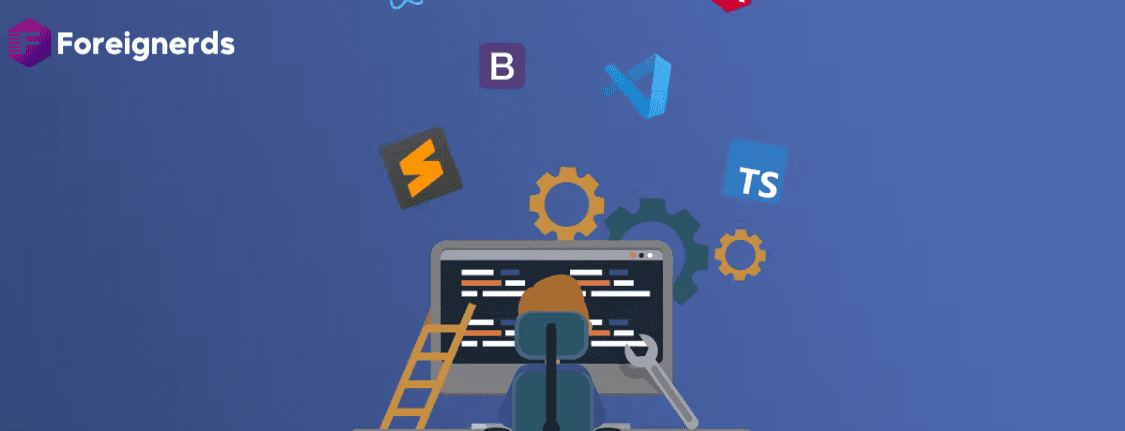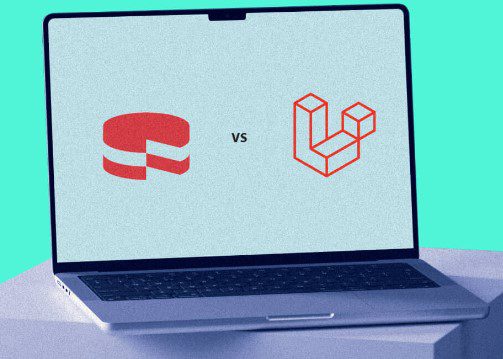- Home
- Website Development & Designing
- CakePHP vs Laravel: Build a Scalable...

In the ever-evolving landscape of web development, choosing the right framework can make or break your project. Two popular PHP frameworks, CakePHP and Laravel, have been making waves in the development community. In this article, we’ll delve into the intricacies of CakePHP vs. Laravel, exploring their features, performance, scalability, security, and more.

CakePHP vs Laravel
Laravel, an open-source PHP framework, has gained immense popularity for its elegant syntax, robust features, and developer-friendly tools. It provides a clean and expressive syntax, making the development process enjoyable and efficient. Laravel boasts a vibrant community and frequent updates, ensuring it stays at the forefront of web development trends.
CakePHP, another PHP framework, is known for its simplicity and rapid development capabilities. It follows the convention over configuration (CoC) principle, reducing the need for unnecessary code. CakePHP is praised for its ease of use and the ability to build applications rapidly, making it a contender in the framework arena.
When it comes to speed, Laravel is recognized for its performance optimization features. The framework includes tools like Eloquent ORM for efficient database queries and Laravel Mix for asset compilation. CakePHP, while efficient, may require additional configuration for optimal speed, and developers need to carefully implement caching mechanisms.
Security is paramount in web development, and both Laravel and CakePHP prioritize it. Laravel comes with built-in security features like protection against SQL injection, cross-site scripting (XSS), and cross-site request forgery (CSRF). CakePHP, too, offers security features, but developers need to be diligent in adhering to best practices.
Laravel shines in terms of scalability, with features like Horizon for job queue management and a robust ecosystem for building scalable applications. CakePHP, while scalable, may require additional considerations and planning for larger projects. Developers should assess the specific scalability needs of their projects.
Performance is a critical factor in web development. Laravel’s performance is commendable, with features like Blade templating engine and efficient routing. CakePHP, though performant, might require careful optimization for resource-intensive applications.
Considering the budget is a crucial aspect of any web development project. Laravel’s extensive ecosystem of packages and tools may result in lower development costs. CakePHP, being lightweight, can also offer cost-effective solutions. However, developers should weigh the specific needs of their projects against the associated costs.
Choosing between CakePHP and Laravel depends on various factors. Laravel’s elegant syntax and extensive documentation make it a strong choice for beginners, while CakePHP’s rapid development capabilities may be ideal for specific projects. Consider the size of the project, scalability requirements, and your team’s familiarity with each framework.
Laravel has been a cornerstone in our web development projects, providing a robust and elegant framework that streamlines the development process. Its expressive syntax, coupled with a rich set of features, has allowed us to create scalable and maintainable applications.
CakePHP has been a reliable choice for projects where convention over configuration is a priority. Its scaffolding capabilities and built-in conventions have expedited the development of straightforward applications.
Both Laravel and CakePHP have their strengths, and the choice between them depends on the specific needs of each project. Laravel excels in larger, more complex applications where a rich feature set and expressive syntax are crucial. On the other hand, CakePHP’s simplicity and convention-driven approach make it a solid choice for smaller projects with straightforward requirements. We have found success in using either framework based on the project’s scale and complexity.
In the CakePHP vs. Laravel debate, there’s no one-size-fits-all answer. The choice ultimately depends on the specific needs of your project, your team’s expertise, and your development goals. Whether you prioritize speed, scalability, or a vibrant community, both frameworks have their strengths. Make an informed decision based on a thorough evaluation of your project requirements.
© 2013 - 2024 Foreignerds. All Rights Reserved